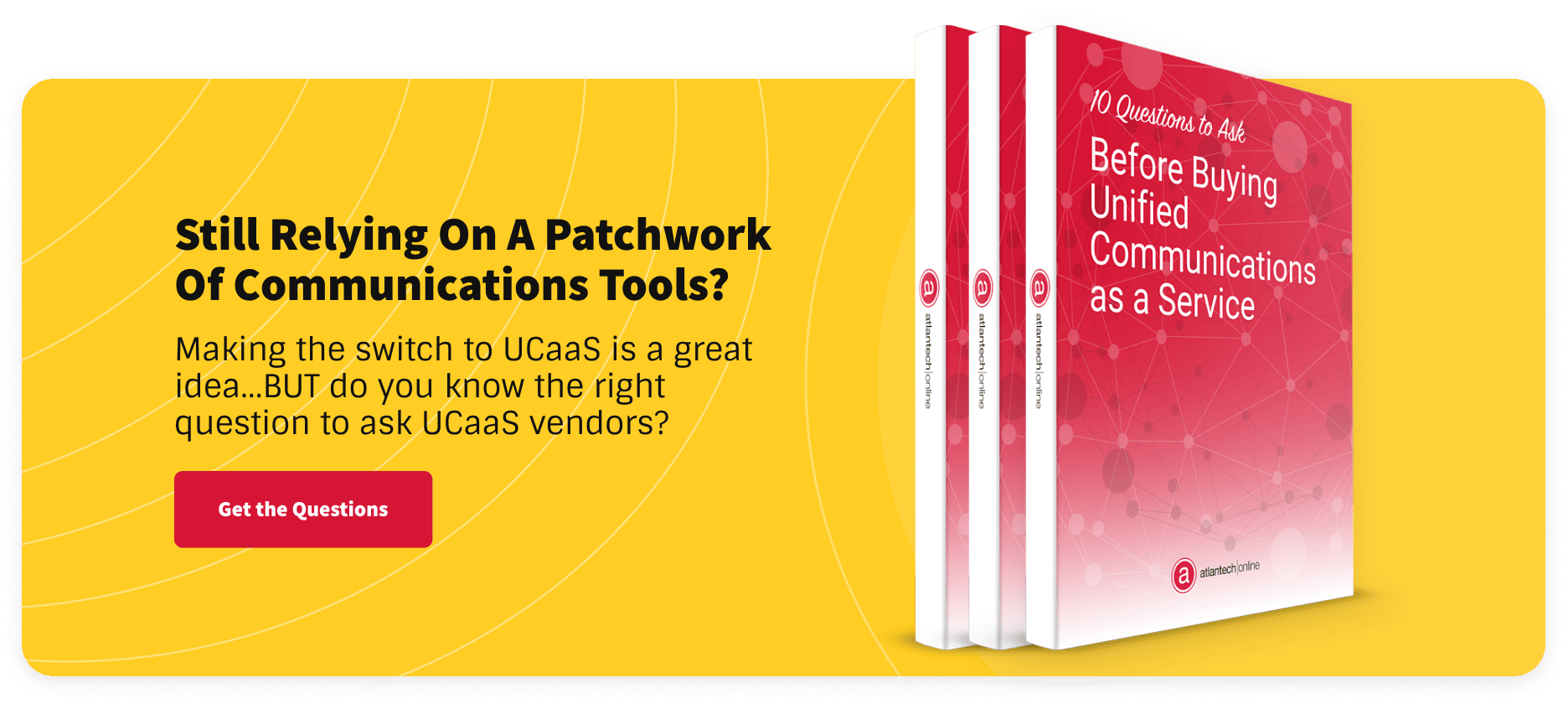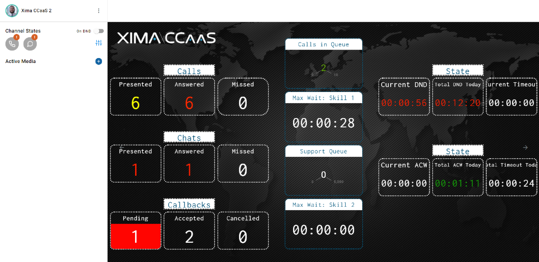The future of call centers is here, and you don’t want to miss it.
Contact center as a service (CCaaS) software solves the inefficiencies of traditional call centers. Companies often experience expensive maintenance costs of hardware and equipment, costly IT services, and substantial downtime costs with traditional call centers.
With CCaaS, you can use software that helps improve your team’s productivity, as well as saving your budget. Early adopters of CCaaS have experienced up to 100% uptime, easy integration, and improved customer support performance.
But what is CCaaS? In this article, we’ll review the basics of what CCaaS is and how to use this software solution in the real world. With all this information, you will be confidently able to decide if CCaaS is the right solution for your call center needs.
What is CCaaS and How can it Positively Impact Your Business?
The CCaaS market size is estimated to grow to $90 billion by 2028 as many companies shift from the traditional call center model. One of the biggest reasons the CCaaS market is growing is the easy alignment of omnichannel call center environments.
Microsoft reports that 66% of companies are using at least three channels to communicate. Centralizing your call center communication improves your internal communication and improves your customer and employee experience.
Let’s review exactly what CCaaS is, its benefits, use cases, and the estimated cost of CCaaS systems.
More Info: Atlantech CCaaS Powered by Xima
Definition of CCaaS
CCaaS is a cloud-based software solution that enables companies to streamline their call center operations. Utilizing CCaaS instead of an on-site call center allows you only to purchase the technology you absolutely need and avoid overpaying for features and hardware that goes unused. CCaaS provides all the benefits of having an on-site call center, minus the ongoing costs of troubleshooting, maintenance, hardware, upgrades, and additional IT specialists.
CCaaS is a software solution that is outsourced to a CCaaS provider. This outsourcing reduces the costs associated with on-site call centers. From hardware to security, everything is handled off-site.

Benefits of CCaaS
Now that we’ve done an overview of what is CCaaS, let’s review the benefits of replacing your on-site call center with a cloud-based CCaaS solution.
The main advantages of adopting a CCaaS system include:
- Enhancing the customer experience
- Seamlessly accessing customer data
- Scalability and flexibility
- Real-time reporting capabilities
- Reducing IT costs of support, integration, and maintenance
- Enabling your team to become compliant with regulatory requirements
- Adopting more remote workers and expand your talent pool
- Increasing security without the cost of an on-site security team
CCaaS Use Cases
At Atlantech, one of the most common client questions we get when discussing CCaaS solutions is, “What is CCaaS going to improve for my company?
The answer is complex depending on the client’s needs, but our response is usually: “CCaaS improves your on-site call center capabilities by running it more efficiently and for less.”
CCaaS solutions work for many types of call center environments because of the flexibility of the software. If you’re managing a high-volume call center, CCaaS will relieve on-site hardware and real estate costs and expand remote workforce capabilities. More specifically, customer engagement or customer service call centers are the perfect on-site operations to replace with CCaaS because of the internal dashboard that CCaaS provides.
At Atlantech, we have a CCaaS solution powered by Xima that provides real-time statistics, interactive chat functionalities, skill-based routing, queue callback, and Salesforce integration. This type of dashboard enables your company to not only reduce unnecessary expenses, but improve your internal operations and your customer experience.

The True Cost of CCaaS
CCaaS, like most software, is usually priced depending on how many seats and which features you need. The average cost of a CCaaS solution ranges depending on several factors, but in general, costs can range from $40-300 per user per month.
On-site call centers also require software that is similarly priced, in addition to all the on-site costs like hardware, IT staffing, and other expenses. The actual savings of using CCaaS comes down to the improvements in productivity and reduction of on-site overhead.
Recent surveys reveal that 42% of companies that implement CCaaS solutions see an increase in agent productivity, and 64% of companies are reaping the benefits of CCaaS software scalability.
When it comes to CCaaS solutions, the cheaper option usually isn’t the best. If you’re going to replace your existing on-site call center, the best option is to look for solutions that help your company in the short and long term while delivering all of the functionalities you need as you scale and grow.
Getting Started with CCaaS
CCaaS solutions are a simple way to transform your call center processes and move to a reliable cloud-based solution. Now that you know what CCaaS is and all the benefits of using this solution, the next crucial decision is which provider is the best fit.
Determining the right CCaaS solution and provider for your business can include some trial and error. Our solution for this is to try our CCaaS solution free for one month. This way, you can see in real-time how a CCaaS solution works for your business in a low-risk environment.


